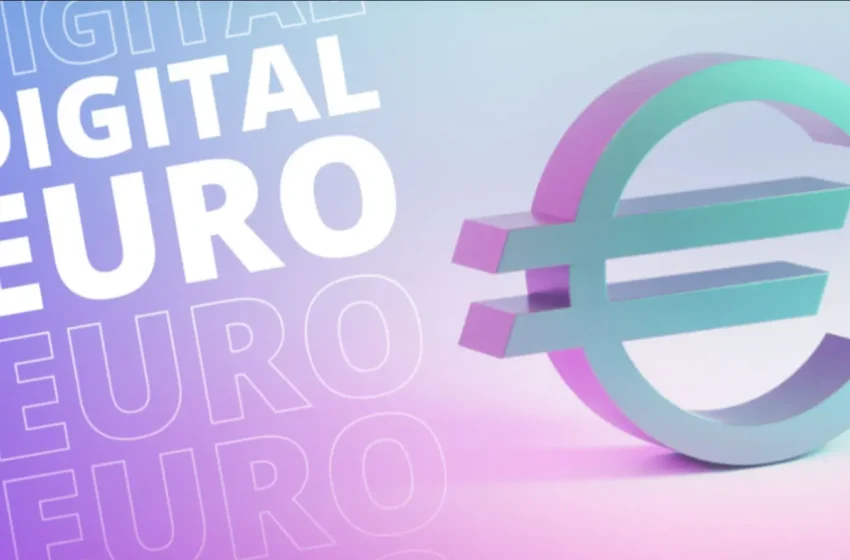Sangha Energizes 20 MW Texas Solar Bitcoin Mine Amid Record-Low
ECB Races Toward Digital Euro, But Legislative Delays Loom
(Originally posted on : Crypto News – iGaming.org )
With the goal of finishing the preparatory stage by October 2025, the European Central Bank (ECB) is stepping up its efforts to establish the framework for a digital euro. Christine Lagarde, president of the European Central Bank, emphasized that legislative approvals are necessary to move forward. “We have October 2025 as our deadline, and we are preparing for that date, but we will not be able to proceed until the other parties, or stakeholders as I refer to them, the commission council, and parliament, actually finish the legislative process,” she said.
Although Lagarde identified October 2025 as a significant turning point, according to ECB papers, the preparation stage will formally end in November 2025. This phase, which began in November 2023, has concentrated on technical designs, legal frameworks, and stakeholder feedback collection. The ECB’s Governing Council will decide whether to move forward after it is finished. The digital euro might not be introduced until 2028, according to analysts, including those from the Deutsche Bundesbank.
Retail and Wholesale Functions in Focus
The digital euro will serve both retail and wholesale purposes. The retail version will allow public use, featuring free basic transactions, offline payment capabilities, and privacy safeguards that prevent the ECB from tracking individual transactions. Meanwhile, the wholesale version will cater to financial institutions, leveraging blockchain technology for faster interbank settlements and cross-border payments. Both components aim to strengthen the euro’s competitiveness amid rising digital currency adoption.
Despite its potential, the digital euro faces several challenges. Privacy concerns remain a major issue, with critics warning that increased monitoring could infringe on users’ financial privacy. Additionally, some fear that a retail digital euro might reduce traditional bank deposits, prompting discussions on potential holding limits. To address these concerns, the ECB has committed to maintaining high privacy standards.
The ECB has also explored blockchain technology for the digital euro. The European Investment Bank (EIB) issued a digital bond on Ethereum, while the Banque de France tested Ethereum for central bank digital currency (CBDC) transactions. Other blockchain platforms have also been examined, but details remain scarce.
New players only. Exclusive Welcome Bonus of 177% + 77 Free Spins
The ECB faces growing pressure to act as other global players advance in digital currency development. China’s digital yuan has already made significant strides, reportedly using Chang’an Chain for blockchain-related functions. Meanwhile, U.S. dollar-backed stablecoins continue to dominate the digital payment space.
Lagarde framed the digital euro as essential to preserving the euro’s global standing. However, with legislative approvals still uncertain, the timeline for its launch remains in flux. While the ECB remains committed to its October 2025 deadline, the broader regulatory and technical landscape suggests that full implementation may not occur before 2028.







 Bitcoin
Bitcoin  Ethereum
Ethereum  Tether
Tether  XRP
XRP  USDC
USDC  Lido Staked Ether
Lido Staked Ether  TRON
TRON  Dogecoin
Dogecoin  Cardano
Cardano  Figure Heloc
Figure Heloc  WhiteBIT Coin
WhiteBIT Coin  Wrapped stETH
Wrapped stETH  Bitcoin Cash
Bitcoin Cash  Wrapped Bitcoin
Wrapped Bitcoin  USDS
USDS  Chainlink
Chainlink  Wrapped eETH
Wrapped eETH  Binance Bridged USDT (BNB Smart Chain)
Binance Bridged USDT (BNB Smart Chain)  LEO Token
LEO Token  WETH
WETH  Hyperliquid
Hyperliquid  Stellar
Stellar  Monero
Monero  Zcash
Zcash  Coinbase Wrapped BTC
Coinbase Wrapped BTC  Ethena USDe
Ethena USDe  Litecoin
Litecoin  Sui
Sui  Avalanche
Avalanche  Hedera
Hedera  Shiba Inu
Shiba Inu  sUSDS
sUSDS  USDT0
USDT0  Dai
Dai  Mantle
Mantle  Toncoin
Toncoin  World Liberty Financial
World Liberty Financial  PayPal USD
PayPal USD  Cronos
Cronos  Ethena Staked USDe
Ethena Staked USDe  Uniswap
Uniswap  Polkadot
Polkadot  MemeCore
MemeCore  Aave
Aave  Bittensor
Bittensor  USD1
USD1  Canton
Canton  Rain
Rain  Bitget Token
Bitget Token  OKB
OKB  Tether Gold
Tether Gold  Falcon USD
Falcon USD  Aster
Aster  NEAR Protocol
NEAR Protocol  Ethereum Classic
Ethereum Classic  Binance-Peg WETH
Binance-Peg WETH  Ethena
Ethena  Jito Staked SOL
Jito Staked SOL  BlackRock USD Institutional Digital Liquidity Fund
BlackRock USD Institutional Digital Liquidity Fund  Pepe
Pepe  Internet Computer
Internet Computer  Pi Network
Pi Network  Jupiter Perpetuals Liquidity Provider Token
Jupiter Perpetuals Liquidity Provider Token  Solana
Solana  Pump.fun
Pump.fun  syrupUSDC
syrupUSDC  HTX DAO
HTX DAO  PAX Gold
PAX Gold  Ondo
Ondo  Worldcoin
Worldcoin  Global Dollar
Global Dollar  KuCoin
KuCoin  Circle USYC
Circle USYC  Sky
Sky  syrupUSDT
syrupUSDT  BFUSD
BFUSD  Ripple USD
Ripple USD  Rocket Pool ETH
Rocket Pool ETH  Binance Bridged USDC (BNB Smart Chain)
Binance Bridged USDC (BNB Smart Chain)  Aptos
Aptos  POL (ex-MATIC)
POL (ex-MATIC)  Gate
Gate  Wrapped BNB
Wrapped BNB  Arbitrum
Arbitrum  Midnight
Midnight  Binance Staked SOL
Binance Staked SOL  Official Trump
Official Trump  Algorand
Algorand  Function FBTC
Function FBTC  Cosmos Hub
Cosmos Hub  Liquid Staked ETH
Liquid Staked ETH  Lombard Staked BTC
Lombard Staked BTC  VeChain
VeChain  Solv Protocol BTC
Solv Protocol BTC